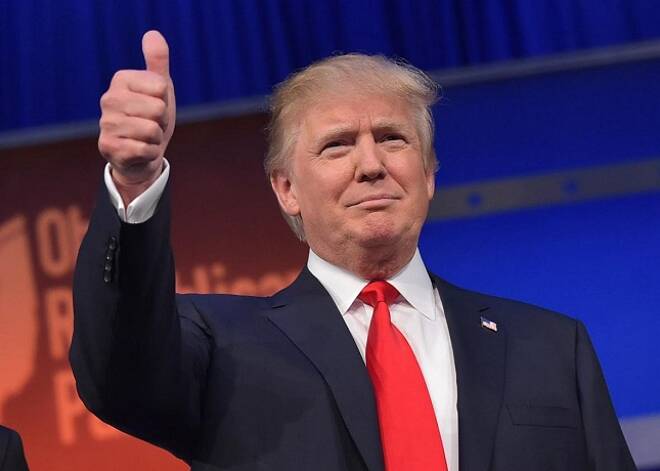Advertisement
Advertisement
How Trump’s victory at the G20 Meeting will affect the markets?
By:
For long, open and free trade across borders had been the cornerstone of any trade meeting and has been essential to keep the global economy ticking over.
For long, open and free trade across borders had been the cornerstone of any trade meeting and has been essential to keep the global economy ticking over. But now, we seem to be entering into a new phase of the global economy where countries would start looking inward and look to see how their trade can benefit their own companies and businesses than to see what could actually be beneficial for the people not only in their country but for others as well. This is part of what they call as the ‘Trump Effect’.
Trump Manages to Have His Way
Trump had been a strong advocate of protectionism which means protecting domestic industry from global competition and he believes that this would benefit the US economy in the long term. Though this does seem like so at a very high level, the costs of such a policy, in terms of production costs, loss of competition, monopoly etc, is expected to far outweigh the benefits in the long term. But with his control of power, he has been able to push through his agenda in the G20 meeting held over the weekend and we now see that the G20 statement no longer mentions that it is against protectionism and it has also dropped its mention of free trade as one of its ideals from the statement. This is seen as a victory for Trump and his agenda of protectionism and shows that he is likely to push through with this policy of his over the next 4 years.
The threat from such a change in the statement should not be under estimated. The market is yet to realise that such a change in global trade policy is likely to bring in a full blown trade war that is likely to affect the global economy as a whole. The 2 biggest countries that could battle this out could be the US and China and this is likely to affect the commodity prices even further. Already we have been seeing the commodity prices under pressure due to the lack of demand from major markets like China and if such markets begin to look further inward, they are likely to put even more pressure on the commodity prices as the demand drops further.
The US could impose tariffs on imports from China and this would affect the exports from China and lead to a drop in their demand which would in turn cause the demand for commodities to drop even further. This is likely to push down the prices of gold, iron ore and copper and also affect the Australian and Kiwi dollar in the medium and long term as China starts reeling under the effects of the tariffs. This has not been seriously noted by the markets but the coming weeks could change that as the market concentrates on the protectionism policy of the new Trump government and its affect on the global economy.
About the Author
Colin Firstauthor
Colin specializes in developing trading strategies and analyze financial instruments both technically and fundamentally. Colin holds a Bachelor of Engineering From Milwaukee University.
Advertisement
